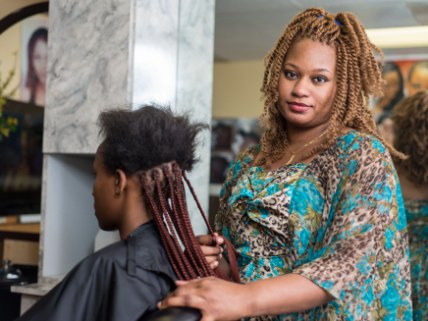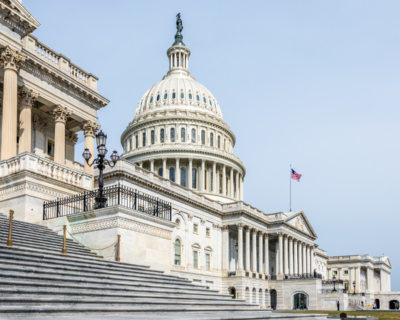
Freedom to Braid
Should braiding hair require a government permission slip? Should obtaining said permission slip require hundreds of hours of government mandated education to obtain it?
The answer to both of these questions is, “Of course not,” but in Louisiana, we hold the esteemed designation as one of only a handful of states to require aspiring hair braiders to obtain an occupational license. We refer to occupational licenses as government permission slips, because that is essentially what they are. Louisianans can only work in certain professions if they have the government’s express written authorization. While these licenses were once for jobs such as practicing law or medicine, today, nearly one in four Louisianans are required to obtain an occupational license to work in their chosen field. As one of the most heavily licensed states in the country, is it any wonder Louisiana residents are losing out on countless jobs and opportunities?
Making things worse is the fact that licenses are often extremely difficult and costly to attain, even for those already skilled in their field. For example, Louisiana requires that anyone wishing to braid hair complete 500 hours of education, even if the person is already a knowledgeable braider. If the number of hours of education weren’t burdensome enough, the state added a geographic hurdle as well by only offering classes in Monroe, Louisiana. For many in this state, the trip can be as long as four to five hours each way.
This seems like an awful lot of effort for something that has been practiced for thousands of years without risk to public health and safety. These requirements cause damage to Louisiana’s economy, while also having devastating effects on the people subject to these requirements.
More than 15 years ago, Louisianans who wanted to braid hair did not have to obtain a separate license in order to do so. This changed in 2003 when the state cosmetology board decided to create the 500-hour requirement. Because the Louisiana legislature decided to let the board write the law itself, women who were supporting themselves and their families through hair braiding found themselves unable to do so without an occupational license. Many of these women don’t have the time or resources to complete the burdensome requirements, and as a result, they end up settling for a job earning far less income rather than being in control of their own business and financial future. This is a true lose-lose situation for everyone involved.
But, thankfully, that may not be the case for much longer.
The Institute for Justice (IJ) is a non-profit law firm that has been pushing back against the ever-encroaching occupational licensing regime across the nation. This week, IJ filed a lawsuit against the state of Louisiana over the hair braiding license, with the intention of ending the overreaching requirements. IJ claims that the cosmetology board creating the license is unconstitutional, as well as that the Louisiana constitution protects the right to earn a living for state citizens.
IJ’s clients in the case, Ashley N’Dakpri, Lynn Schofield and Michelle Robertsonare, are women with decades of hair braiding experience and long track records of braiding hair safely for their clients. Requiring an additional 500 hours of braiding education so that their clients can avoid alleged potential harms is ludicrous. This notion is especially absurd given that none of Louisiana’s neighboring states license hair braiding.
Hopefully, IJ can replicate its past success on challenging hair braiding licenses, and lawmakers will use this lawsuit as a catalyst to eliminate more unnecessary licenses that are leading to the destruction of jobs and opportunity in Louisiana.
Countless women and their families across Louisiana depend on it.



